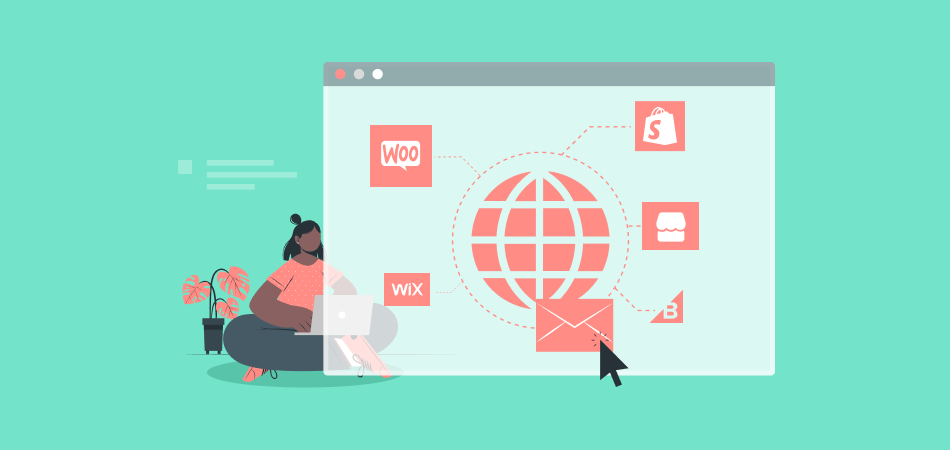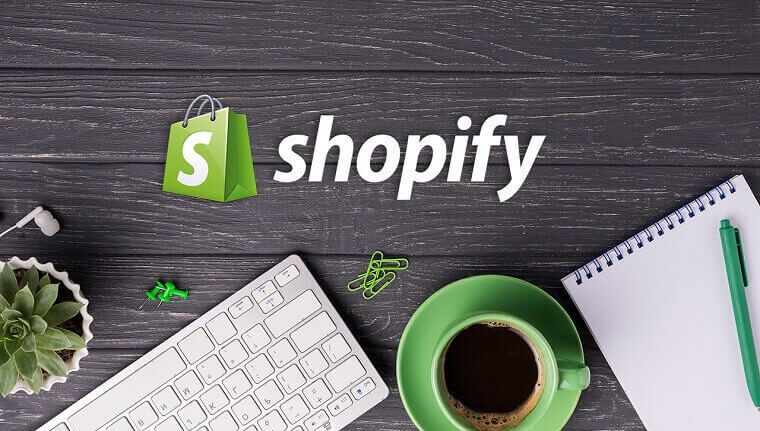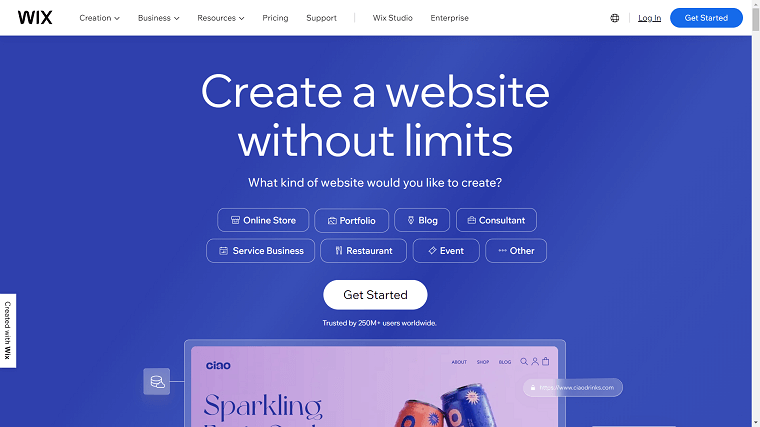Top 10 Shopify Alternatives & Competitors: Comprehensive Guide

Shopify has long been a leading player in this space, offering a robust suite of features and tools to entrepreneurs and small businesses. However, as the market continues to diversify, organizations need to explore the expanding landscape of Shopify competitors and alternatives. This comprehensive guide examines the top 10 Shopify alternatives, evaluating their unique features, and what to consider to choose the best alternatives.
What Is Shopify
Shopify is a leading e-commerce platform that allows businesses of all sizes to create and manage their online stores. Launched in 2006, Shopify has grown to become one of the most popular e-commerce solutions, with over 1 million businesses using the platform to sell their products and services online.

Shopify's success is largely due to its user-friendly interface, extensive app ecosystem, and robust set of features that enable merchants to easily build, customize, and manage their online stores. From basic online stores to complex multi-channel retail operations, Shopify has the tools and capabilities to support a wide range of e-commerce needs.
10 Shopify Alternatives
While Shopify is a comprehensive e-commerce solution, it's not the only option available. There are several Shopify competitors and alternatives that offer their unique features and benefits. Let's explore the top 10 Shopify competitors.
1. Ecwid
Ecwid is a popular e-commerce platform that allows businesses to easily add an online store to their existing website or social media channels. Unlike Shopify, which is a standalone e-commerce platform, Ecwid is designed to be a "buy button" solution that can be seamlessly integrated into existing online presences.
Key features of Ecwid include:
- Intuitive drag-and-drop store builder
- Mobile-optimized checkout and shopping cart
- Comprehensive inventory management and order fulfillment
- Robust analytics and reporting
Ecwid is a good Shopify alternative for small businesses and entrepreneurs who already have an established online presence and want to quickly add e-commerce capabilities without the need for a complete website overhaul.
2. BigCommerce
BigCommerce is a comprehensive e-commerce platform that offers a wide range of features and customization options. Like Shopify, BigCommerce is a fully hosted solution, meaning merchants don't need to worry about hosting, security, or software updates.
Key features of BigCommerce include:
- Flexible and customizable website builder
- Advanced product management and inventory control
- Powerful SEO and marketing tools
- Extensive app and integration marketplace
- Enterprise-level features for high-volume merchants
BigCommerce is often seen as a more robust and scalable alternative to Shopify, particularly for larger businesses or those with complex e-commerce requirements. The platform's advanced features and flexibility make it a popular choice for merchants who need more advanced functionality than what Shopify offers.
3. Shift4Shop
Shift4Shop, previously known as 3dcart, is a comprehensive e-commerce platform that has been around since 1997. The platform offers a wide range of features and customization options, making it a viable alternative to Shopify.
Key features of Shift4Shop include:
- Fully hosted and managed e-commerce solution
- Extensive product management and inventory control
- Advanced marketing and SEO tools
- Robust reporting and analytics
- Excellent customer support and training resources
Shift4Shop is often praised for its powerful features, flexibility, and robust backend capabilities. The platform is a good fit for businesses of all sizes, from small startups to large enterprises, and is particularly well-suited for merchants with complex e-commerce requirements.
4. Wix
Wix is a website builder platform that also offers e-commerce capabilities, making it a potential Shopify competitor. Wix Stores allows businesses to create online stores with a range of features and customization options.

Key features of Wix Stores include:
- Intuitive drag-and-drop website builder
- Customizable online store templates
- Integrated payment processing and shopping cart
- Multichannel selling across websites, social media, and marketplaces
- Automated inventory management and order fulfillment
Wix Stores is a good Shopify alternative for small businesses and entrepreneurs who want a more all-in-one solution for their online presence, including both website building and e-commerce functionality. The platform's ease of use and design flexibility make it a popular choice for those with limited technical expertise.
5. BigCartel
BigCartel is a streamlined e-commerce platform that is designed to be a simple and affordable solution for artists, musicians, and small businesses. Unlike Shopify, which offers a wide range of features and customization options, BigCartel focuses on providing a straightforward and user-friendly platform for creating and managing online stores.
Key features of BigCartel include:
- Simple and intuitive store builder
- Mobile-optimized design and checkout
- Integrated payment processing and order management
- Basic inventory and product management
- Limited but easy-to-use marketing and SEO tools

|
Tracking Number with Auto Sync Auto Sync Tracking Numbers - Automatically sync the tracking number from AliExpress to your store |
BigCartel is a good Shopify alternative for small businesses and individual creators who don't need the more extensive features and customization options offered by Shopify. The platform's simplicity and affordability make it an attractive choice for those with basic e-commerce needs.
6. Magento
Magento is an open-source e-commerce platform that provides a highly adaptable and scalable solution suitable for businesses of all scales. While Magento is often seen as a more complex and resource-intensive platform compared to Shopify, it provides a greater degree of flexibility and control for merchants.
Key features of Magento include:
- Robust and customizable product management
- Advanced marketing and SEO tools
- Powerful reporting and analytics
- Extensive ecosystem of third-party extensions and integrations
- Scalability to handle high-volume e-commerce operations
Magento is a good Shopify alternative for larger businesses or those with highly complex e-commerce requirements. The platform's open-source nature and extensive customization options make it a popular choice for merchants who want more control over their online store's functionality and branding.
7. Etsy
Etsy is a popular online marketplace that allows small businesses, artisans, and individual creators to sell their handmade, vintage, and craft-related products. While Etsy is not a direct competitor to Shopify in terms of being a comprehensive e-commerce platform, it does offer an alternative for businesses and individuals who want to leverage an established online marketplace.

Key features of Etsy include:
- Intuitive platform for listing and managing products
- Large and engaged customer base
- Built-in tools for marketing, branding, and customer communication
- Simplified payment processing and order management
- Limited customization options compared to Shopify
Etsy is a good Shopify alternative for small businesses, artists, and individual creators who primarily sell handmade, vintage, or craft-related products and want to leverage the existing Etsy marketplace and community. It offers a more streamlined and simplified approach to e-commerce compared to Shopify's more comprehensive platform.
8. Amazon
Amazon, the global e-commerce giant, can also be considered a Shopify competitor, particularly for businesses that want to sell their products on a large, established online marketplace. Amazon offers several e-commerce solutions, including Amazon Seller Central, which allows businesses to list and sell their products on the Amazon platform. And Amazon allows dropshipping.

Key features of Amazon Seller Central include:
- Vast customer base and fulfillment network
- Simplified product listing and inventory management
- Integrated payment processing and order fulfillment
- Robust analytics and reporting
- Potential for increased visibility and sales through Amazon's marketing and advertising tools
Amazon Seller Central is a good Shopify alternative for businesses that want to leverage the reach and credibility of the Amazon marketplace, particularly for those selling physical products. However, it's important to note that Amazon Seller Central has its own set of rules, fees, and constraints that merchants must navigate.
9. OpenCart
OpenCart is an open-source e-commerce platform that offers a more DIY approach to building and managing online stores. While it may require a higher level of technical expertise compared to Shopify, OpenCart provides greater flexibility and customization options for merchants.
Key features of OpenCart include:
- Open-source and highly customizable code base
- Extensive catalog of third-party extensions and modules
- Advanced product management and inventory control
- Powerful marketing and SEO tools
- Scalability to handle high-volume e-commerce operations
OpenCart is a good Shopify alternative for businesses that have the technical resources and expertise to manage and customize their e-commerce platform. The platform's open-source nature and extensive customization options make it a popular choice for merchants who want more control over their online store's functionality and branding.
10. Salesforce
Salesforce Commerce Cloud, previously known as Demandware, is an enterprise-level e-commerce platform that is often considered a Shopify competitor for larger businesses and high-volume merchants. The platform is part of the Salesforce ecosystem and offers a range of advanced features and capabilities.
Key features of Salesforce Commerce Cloud include:
- Highly scalable and enterprise-grade e-commerce solution
- Seamless integration with other Salesforce products
- Powerful merchandising and product management tools
- Robust marketing and personalization capabilities
- Comprehensive reporting and analytics
Salesforce Commerce Cloud is a good Shopify alternative for large, complex businesses that require an enterprise-level e-commerce platform with advanced features and integration capabilities. However, the platform's high cost and level of complexity may make it less suitable for smaller businesses and startups.
How to Choose a Shopify Alternative
When selecting a Shopify alternative, there are several key factors to consider:
1. Features and Functionality
Evaluate the specific features and capabilities of each platform to ensure it meets your business's e-commerce requirements, such as product management, marketing tools, payment processing, and reporting.

|
Adapt Your Product Prices Automatically DSers Automatic Pricing - Pre-set Pricing Rule to mark-up your product price automatically |
Ease of Use
Consider the platform's user-friendliness and the level of technical expertise required to set up and manage your online store.
Scalability
Assess the platform's ability to grow and adapt as your business expands, including support for high-volume sales, multiple sales channels, and complex e-commerce operations.
Costs
Understand the pricing structure, including any recurring subscription fees, transaction fees, and costs for additional features or integrations.
Customization and Flexibility
Determine the level of customization and control you require over your online store's design, functionality, and branding.
Integration and Ecosystem
Evaluate the platform's integration capabilities with other tools and services you use, as well as the availability of third-party apps and extensions.
Customer Support
Consider the quality and responsiveness of the platform's customer support, as well as any available documentation, tutorials, and training resources.
Security and Compliance
Ensure the platform meets your security and compliance requirements, including data protection, payment processing, and regulatory standards.
Shopify Alternatives: Which One to Choose
The right Shopify alternative for your business will depend on your specific e-commerce needs, budget, and technical capabilities. Here's a quick overview of which Shopify competitor may be the best fit for different types of businesses:
- Small Businesses and Startups: Ecwid, Wix, or BigCartel may be good options for their simplicity, affordability, and ease of use.
- Growing Businesses: BigCommerce or Shift4Shop could be viable alternatives, offering more advanced features and scalability.
- Complex or Enterprise-level Operations: Magento or Salesforce Commerce Cloud may be better suited, with their robust functionality and customization options.
- Artisans, Creators, and Niche Sellers: Etsy could be a suitable choice, leveraging its established marketplace and community.
Ultimately, the best Shopify alternative will depend on your specific business needs, budget, and technical expertise. It's important to thoroughly evaluate and compare the various options to ensure you choose the platform that will best support your e-commerce goals.











 Company
Company
 Why Choose DSers
Why Choose DSers
 Blog
Blog
 Help Center
Help Center




 Live Chat
Live Chat